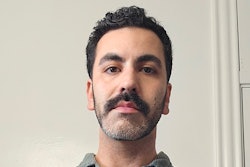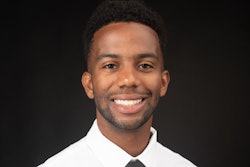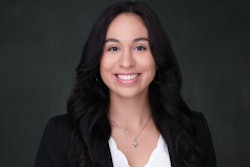
During her tenure as an undergraduate at City College of New York, she specialized in biology and bio-technology – though her research at the time did involve studying Alzheimer’s disease, a neurodegenerative disease.
These research experiences sparked “a drive” in the field of neuroscience.
By the time she discovered she had this newfound interest, she was too far into her undergraduate career. But the option of going to graduate school presented her with an avenue forward.
“Some people had told me you can’t really do that because you didn’t do that in undergrad,” says Morales. “But the person I worked under, my principal investigator, [told me]: ‘That’s silly, you should absolutely do what interests you. Whatever you need to learn, you’ll learn it there.’
“And she was absolutely right.”
Now in her fifth year of pursuing a Ph.D. in neuroscience at Brandeis University, Morales stands as a researcher and a mentor in her own right.
In her capacity as a researcher, Morales’s scientific work looks at the brains of flies and explores the functions of RNA molecules, specifically circular RNA molecules. These kinds of “very powerful little [molecules]” have been historically “poorly studied,” she says matter-of-factly.
“We’re just trying to really understand if this specific circular RNA is behind certain behaviors and how we could tie that into its function,” she explains. “We know that it’s everywhere in the fly brain. We just want to know what it does.”
RNA has been relevant in recent years, even outside of scientific circles. Moderna’s COVID-19 vaccine was an RNA-based vaccine, an occurrence that only added to her interest in the topic and its potential, Morales says.
Morales’s final projects for her degree will involve further study into circular RNA in flies and the molecules’ potential ties to neurological disorders.
“Her curiosity and willingness to know more really makes her push the boundaries of technology and conceptual thinking,” says her dissertation adviser Dr. Sebastian Kadener, a biology professor at Brandeis.
In her capacity as a mentor, Morales works to guide and advise incoming students into Brandeis.
“I wanted to kind of be a home away from home for the students that I mentor,” she says. “I hope that I give them some kind of comfort that I wasn’t offered when I started school in a very new place.”
She’s paying it forward for the support she received along her journey.
“I only got to the place where I was because people encouraged me and told me not to give up,” Morales says. “That helped me feel less isolated and encouraged me to keep going and [pursue] what I wanted to do in a field where there are not many people who look like me.”
Though she earned her undergraduate degree at City College of New York, that’s not where she started. The New York City native first attended Syracuse University but struggled with the lack of diversity on campus.
“I’m used to a lot of diversity surrounding me, different types of people from different places, and I really like that,” says Morales. “I had a really hard time just being the only Hispanic doing a lot of the things I was doing there. I felt really isolated. It wasn’t bad. It was just that I wasn’t used to it.”
Morales ended up transferring midway through her undergraduate career to the public City College, an Asian American and Native American Pacific Islander-serving institution (AANAPISI) and a Hispanic-Serving Institution (HSI), marking a return to her hometown.
Her goal now is to graduate within two years. After earning her doctorate, she hopes to work in the biotech industry, ideally at a start-up.





















